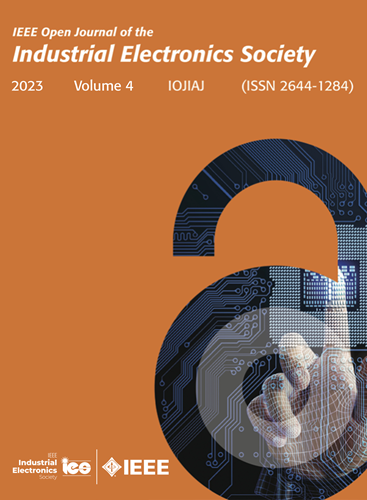改进无模型预测电流控制抑制变频调速系统非线性和参数时变
IF 7.2
1区 工程技术
Q1 AUTOMATION & CONTROL SYSTEMS
引用次数: 0
摘要
为了提高永磁同步电机(PMSM)驱动系统的控制性能,提出了一种基于扩展状态观测器(ESO)和电压源逆变器(VSI)非线性补偿的无模型预测电流控制方法。首先,介绍了一种基于永磁同步电机ESO的改进无模型预测电流控制(MFPCC),该控制不需要电机参数,并且需要较少的调谐工作。然后,提出了一种电压源逆变器非线性补偿方法,以减小三相桥式电压源逆变器死区时间增加所造成的电流畸变。通过仿真调整得到近似参数,并应用于实验进行进一步微调。将基于ESO的无模型控制和基于电压源逆变器(VSI)非线性补偿相结合,弥补各自的不足,实现了对系统周期和非周期扰动的抑制。最后,实验结果证明了该方法对周期和非周期扰动的鲁棒性。本文章由计算机程序翻译,如有差异,请以英文原文为准。
Improved Model-Free Predictive Current Control for Suppressing Inverter Nonlinearity and Parametric Time-Varying of PMSM Drive Systems
To improve the control performance of permanent magnet synchronous motor (PMSM) drive systems, an improved model-free predictive current control based on extended state observer (ESO) with voltage source inverter (VSI) nonlinearity compensation is proposed. First, an improved model-free predictive current control (MFPCC) based on the ESO of PMSM drives is introduced, which does not require motor parameters and needs less tuning work. Then, a voltage source inverter nonlinearity compensation method is proposed to reduce the current distortion resulting from the added dead time in the three-phase bridge voltage source inverter. The approximate parameters are obtained through adjusting in the simulation, and then applied to the experiment for further fine-tuning. The model-free control based on ESO and voltage source inverter (VSI) nonlinearity compensation are combined to compensate for their respective shortcomings, achieving the suppression of periodic and aperiodic disturbances in the system. Finally, the experimental results prove its robustness to both periodic and aperiodic disturbances.
求助全文
通过发布文献求助,成功后即可免费获取论文全文。
去求助
来源期刊

IEEE Transactions on Industrial Electronics
工程技术-工程:电子与电气
CiteScore
16.80
自引率
9.10%
发文量
1396
审稿时长
6.3 months
期刊介绍:
Journal Name: IEEE Transactions on Industrial Electronics
Publication Frequency: Monthly
Scope:
The scope of IEEE Transactions on Industrial Electronics encompasses the following areas:
Applications of electronics, controls, and communications in industrial and manufacturing systems and processes.
Power electronics and drive control techniques.
System control and signal processing.
Fault detection and diagnosis.
Power systems.
Instrumentation, measurement, and testing.
Modeling and simulation.
Motion control.
Robotics.
Sensors and actuators.
Implementation of neural networks, fuzzy logic, and artificial intelligence in industrial systems.
Factory automation.
Communication and computer networks.
 求助内容:
求助内容: 应助结果提醒方式:
应助结果提醒方式:


